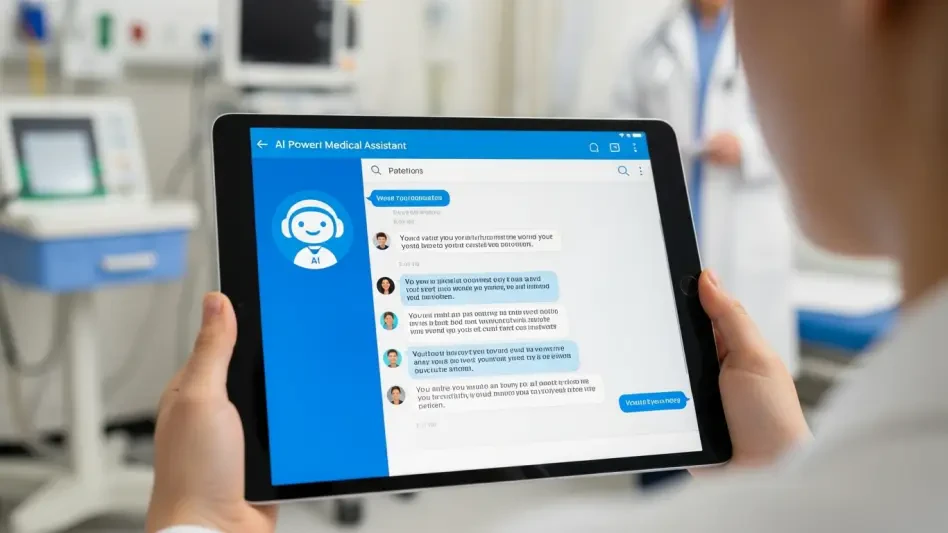Navigating the complexities of modern healthcare often feels like an uphill battle, with long wait times for appointments and a flood of online misinformation creating significant barriers to timely and reliable care. In this landscape, technology-driven solutions have emerged as potential game-changers, promising to bridge gaps in accessibility and efficiency. Two prominent players, Doctolib, a French healthcare appointment platform, and One Medical, a U.S.-based primary care provider under Amazon’s umbrella, stand out for their innovative approaches. This comparison delves into how these platforms leverage technology to enhance patient experiences, addressing systemic challenges while navigating unique operational and ethical hurdles. By examining their features, reach, and challenges, a clearer picture emerges of their roles in transforming healthcare delivery.
Understanding Doctolib and One Medical: Background and Purpose
Doctolib, founded in France, has established itself as a leading digital platform for scheduling medical appointments across Europe. Its primary mission centers on streamlining access to healthcare through user-friendly technology, enabling patients to book consultations with ease and supporting medical professionals with efficient tools. The platform has gained traction for tackling inefficiencies in appointment systems, a persistent issue in many healthcare systems.
One Medical, on the other hand, operates as a membership-based primary care provider in the United States, acquired by Amazon to integrate technology into personalized healthcare. Its purpose lies in offering accessible, patient-centered care through digital tools and in-person services, emphasizing convenience with features like 24/7 virtual support. This approach targets the growing demand for on-demand medical services in a fast-paced society.
Both entities play significant roles in addressing critical healthcare challenges such as accessibility and operational efficiency. Their reliance on technology to improve patient experiences forms a common thread, setting the stage for a detailed comparison of their strategies, innovations, and impact. While they operate in different regions and under distinct models, their shared goal of enhancing care delivery through digital means offers valuable insights into the evolving healthcare landscape.
Comparing Core Features and Approaches
Technology Integration and AI Innovation
Doctolib has ventured into cutting-edge territory with the development of an AI-based medical assistant, initially focused on pediatric support for parents. This tool aims to deliver scientifically verified responses, combating the spread of misinformation often encountered online. By prioritizing accuracy through technology, the platform seeks to provide a reliable first point of contact for health-related queries.
In contrast, One Medical employs technology to facilitate seamless interactions between patients and providers via its robust app and digital ecosystem. Features like easy appointment scheduling and virtual care consultations underscore its commitment to convenience. The integration of tech ensures that patients can access care without the friction of traditional systems, enhancing overall engagement.
While Doctolib’s AI innovation targets a niche area with potential for broader application, One Medical’s approach focuses on a comprehensive digital experience across primary care. Both platforms demonstrate how technology can address distinct pain points, yet their methods reflect differing priorities—specialized information delivery versus holistic service integration.
Accessibility and Patient Reach
Accessibility remains a cornerstone for Doctolib, particularly in the European market, where it works to close gaps in appointment availability. The platform’s AI assistant, offered free during its initial phase for parents seeking pediatric advice, exemplifies this commitment to lowering barriers. Such initiatives aim to empower users with immediate, trustworthy resources in regions where healthcare access can be inconsistent.
One Medical, by contrast, adopts a membership-based model in the U.S., providing on-demand care through a subscription that guarantees 24/7 availability. This structure caters to individuals seeking prompt attention without the delays common in traditional primary care settings. However, the fee-based approach may limit its reach to those able or willing to pay for premium access.
The disparity in their accessibility strategies highlights regional and operational differences—Doctolib’s emphasis on free, inclusive tools versus One Medical’s focus on a paid, comprehensive service. Each addresses unique demographic needs, reflecting the diverse challenges of healthcare delivery in their respective markets.
Partnerships and Credibility
Doctolib strengthens its credibility through strategic collaborations, notably with the French Association of Ambulatory Pediatrics (AFPA), which validates content for its AI assistant over a multi-year partnership. Such alliances ensure that the platform’s offerings align with medical standards, fostering trust among users. The focus on regional expertise enhances its relevance within Europe.
One Medical, integrated into Amazon’s vast ecosystem, benefits from substantial resources and technological infrastructure following its acquisition. This corporate backing amplifies its operational scale and potential for innovation, though it also raises questions about data handling under a tech giant’s oversight. The partnership provides a competitive edge in the U.S. market.
These collaborative efforts underscore varying approaches to building trust—Doctolib through specialized medical partnerships and One Medical via corporate synergy. The impact on reliability differs, with regional focus shaping Doctolib’s credibility and expansive resources defining One Medical’s market presence.
Challenges and Ethical Considerations
Data privacy emerges as a critical challenge for both platforms, given the sensitive nature of health information they handle. For Doctolib, managing user queries through its AI system requires stringent safeguards to protect personal data, especially in light of strict European regulations. Any misstep could undermine user confidence in its digital tools.
One Medical faces similar scrutiny, amplified by its affiliation with Amazon, a company often under the spotlight for data practices. Concerns about how personal health information is stored or utilized within a corporate framework pose risks to patient trust. Balancing innovation with privacy remains a delicate task for such a large-scale operation.
Ethical dilemmas also loom large, particularly the risk of over-reliance on technology at the expense of human interaction. Both platforms must ensure that AI or digital systems do not overshadow the empathy and nuanced judgment of medical professionals. Additionally, operational constraints, such as Doctolib’s AI still being in beta with no set launch timeline, and One Medical’s need to align corporate goals with patient care, highlight the ongoing struggle to perfect tech-driven healthcare solutions.
Conclusion: Which Platform Suits Specific Needs?
Reflecting on the comparison, it becomes evident that Doctolib and One Medical carve distinct paths in leveraging technology for healthcare, with Doctolib honing in on AI-driven pediatric support for the European market and One Medical offering a broader, membership-based primary care model in the U.S. Their similarities in using digital tools to enhance patient experiences are matched by stark contrasts in accessibility and operational scale. Moving forward, stakeholders should consider tailored adoption based on geographic and personal needs—Doctolib proves more suited for European parents seeking free, reliable health information, while One Medical caters effectively to U.S. individuals valuing integrated, on-demand services.
To advance their impact, both platforms must prioritize robust privacy frameworks and transparent communication about their technological readiness. Collaborative efforts with regulators and medical communities could further refine their offerings, ensuring ethical standards keep pace with innovation. As healthcare continues to evolve, monitoring how these entities address operational limitations and user trust will be crucial for shaping accessible, tech-enabled care models that truly meet global demands.









